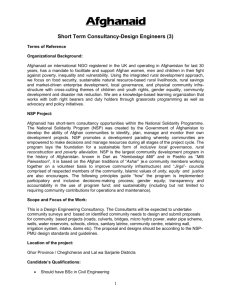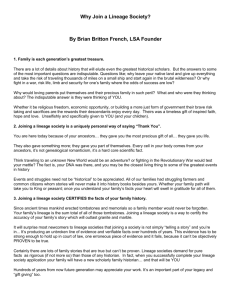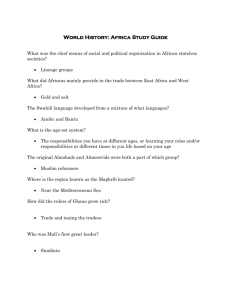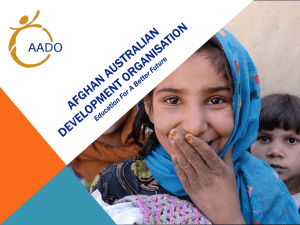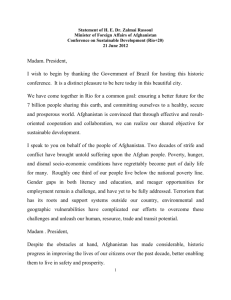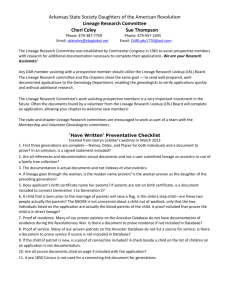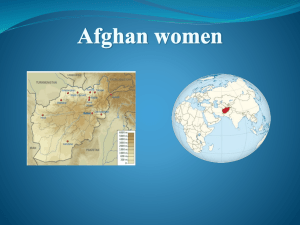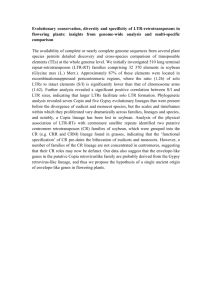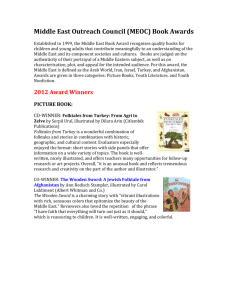Louis Dupree Excerpts on the Pashtuns
advertisement
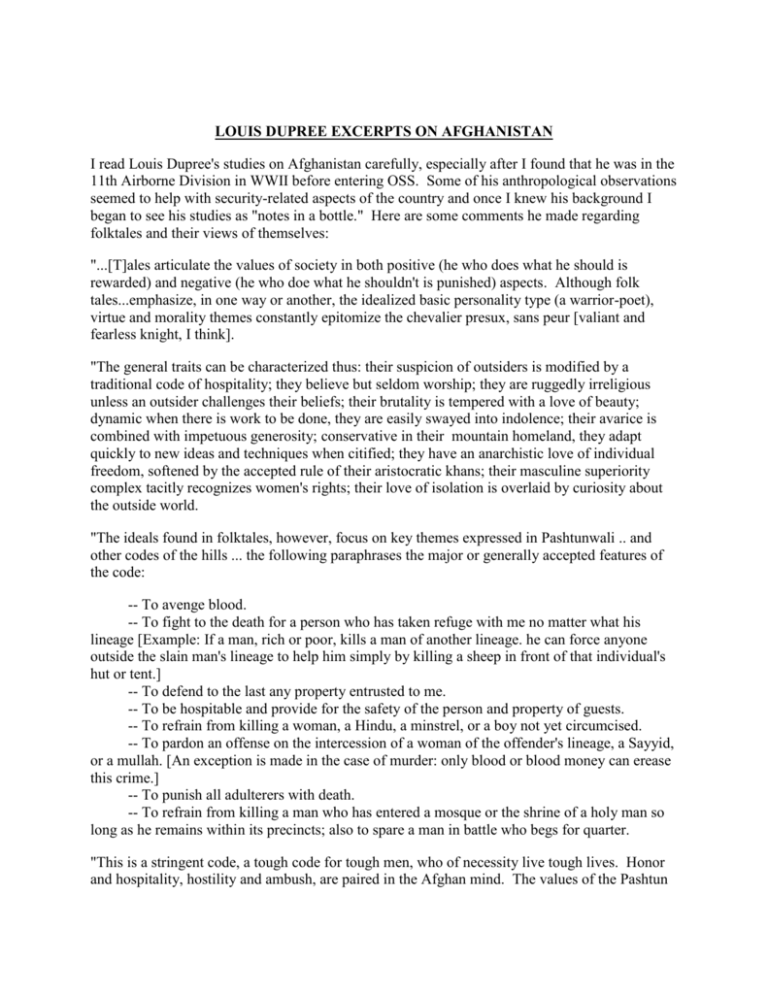
LOUIS DUPREE EXCERPTS ON AFGHANISTAN I read Louis Dupree's studies on Afghanistan carefully, especially after I found that he was in the 11th Airborne Division in WWII before entering OSS. Some of his anthropological observations seemed to help with security-related aspects of the country and once I knew his background I began to see his studies as "notes in a bottle." Here are some comments he made regarding folktales and their views of themselves: "...[T]ales articulate the values of society in both positive (he who does what he should is rewarded) and negative (he who doe what he shouldn't is punished) aspects. Although folk tales...emphasize, in one way or another, the idealized basic personality type (a warrior-poet), virtue and morality themes constantly epitomize the chevalier presux, sans peur [valiant and fearless knight, I think]. "The general traits can be characterized thus: their suspicion of outsiders is modified by a traditional code of hospitality; they believe but seldom worship; they are ruggedly irreligious unless an outsider challenges their beliefs; their brutality is tempered with a love of beauty; dynamic when there is work to be done, they are easily swayed into indolence; their avarice is combined with impetuous generosity; conservative in their mountain homeland, they adapt quickly to new ideas and techniques when citified; they have an anarchistic love of individual freedom, softened by the accepted rule of their aristocratic khans; their masculine superiority complex tacitly recognizes women's rights; their love of isolation is overlaid by curiosity about the outside world. "The ideals found in folktales, however, focus on key themes expressed in Pashtunwali .. and other codes of the hills ... the following paraphrases the major or generally accepted features of the code: -- To avenge blood. -- To fight to the death for a person who has taken refuge with me no matter what his lineage [Example: If a man, rich or poor, kills a man of another lineage. he can force anyone outside the slain man's lineage to help him simply by killing a sheep in front of that individual's hut or tent.] -- To defend to the last any property entrusted to me. -- To be hospitable and provide for the safety of the person and property of guests. -- To refrain from killing a woman, a Hindu, a minstrel, or a boy not yet circumcised. -- To pardon an offense on the intercession of a woman of the offender's lineage, a Sayyid, or a mullah. [An exception is made in the case of murder: only blood or blood money can erease this crime.] -- To punish all adulterers with death. -- To refrain from killing a man who has entered a mosque or the shrine of a holy man so long as he remains within its precincts; also to spare a man in battle who begs for quarter. "This is a stringent code, a tough code for tough men, who of necessity live tough lives. Honor and hospitality, hostility and ambush, are paired in the Afghan mind. The values of the Pashtun and of the Muslim religion, modified by local custom, permeate in varying degrees all Afghan ethnic groups. "The warrior-poet, brave in battle, will also be articulate in the Jirgah, able to speak on any subject, evoking poetic imagery and illusion in specific points. Few men fulfill the idealized requirements to become great warrior-poets; when they do, however, they become the heroes of their age.... "Afghan village and nomadic society has little room for dissidence. The folktales emphasize this. Some tales describe what happens when a coward returns home: his mother disowns him. It is almost always the mother who rejects the coward -- again emphasizing the importance of women in the society. A coward killed running away from a fight will not be buried in the Muslim rites. He becomes a ghost, never to reach paradise." Louis Dupree, Afghanistan, pp. 126-127.

